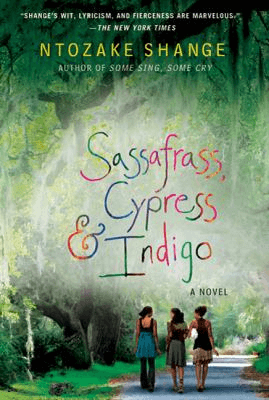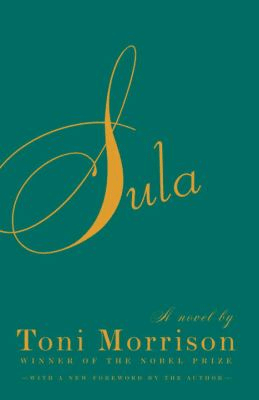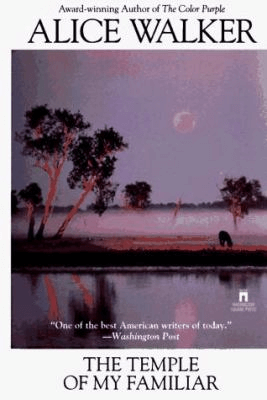Unless you hang out in certain circles, you’ve probably never heard the term “ecofeminism.” Ecofeminists believe that nature and culture are intrinsically linked, and that the environmental harm we’re doing to our planet parallels the harm oppressive cultures do to marginalized groups like women and people of color. The word “ecofeminist” is itself a compound of “ecology” and “feminist.” In practice, it is an intersectional, multidimensional approach to social justice that recognizes we are inextricably linked to the land and our environments. Without social justice we cannot have environmental justice, and without environmental justice we cannot have social justice.
Unsurprisingly, many women of color have written both novels and nonfiction books with strong ecofeminist themes. These books attempt to make sense of the relationship slaves had with the land they worked but never owned; of natural disasters that decimate towns and disproportionately affect poor people and people of color; of both physical and environmental violence at the hands of men; of our modern disconnect from nature and what that means.

Sassafrass, Cypress, and Indigo by Ntozake Shange
This novel tells the story of three sisters, each named for a different plant. The sisters and their single mother live in Charleston, South Carolina, where they make textiles from start to finished bolt of fabric. The sisters, each with her own unique creative and spiritual gift, take different paths in their pursuit of fulfillment and enlightenment. The novel is steeped in the Gullah culture and language, and mysticism and magic abound. Gullah culture developed during slavery in South Carolina as a mixture of African traditions and influences. As with many ecofeminist novels, the structure is not linear and contains many asides, recipes, spells, letters and other ephemera. Shange explores the relationship between the main characters and their homeland, South Carolina, as well as their more distant connection to Africa through the Black Arts Movement. This relationship to the land and the environment serves both as foil and benevolent patron to the characters as they grow up, make mistakes, learn and find their power.

Sula by Toni Morrison
Sula takes place in the aftermath of World War I in Ohio, in an African American community called The Bottom. The Bottom, ironically, is actually at the top of a hill. It was given to a former slave as a sort of trick, because the land was undesirable. Now, wealthy white people from the town Medallion at the bottom of the hill want to turn The Bottom into a golf course. The landscape features heavily in the novel as characters fight to save their community. The plot is spread out over many years and focuses in on two girls: Nel and Sula. Nel is the “good” girl–conventional, proper. Sula, marred by an accident in which a boy drowned, leaves The Bottom and has many affairs. When she returns, the townsfolk and Nel see her as the “bad” girl, but of course the truth is much more complicated. Toni Morrison challenges traditional ideas of morality and ties them to the land, making this a riveting ecofeminist read (bonus: Toni Morrison reads all her own audiobooks, and her voice is enchanting!)

The Temple of My Familiar by Alice Walker
I haven’t read The Temple of My Familiar, but you can’t go wrong with Alice Walker. (Even if she weren’t an awesome writer, we have her to thank for the rediscovery of Zora Neale Hurston’s Their Eyes Were Watching God, another book with an ecofeminist bent.) The Temple of My Familiar is the sequel to Walker’s celebrated The Color Purple and deals with racism, misogyny, oppression, the past and identity. Like Sassafrass, Cypress, and Indigo, it features a non-linear narrative structure focused around six central characters. The characters are connected in subtle rather than direct ways, and each has to grapple with history and their own identities. Africa forms a sort of focal point as the beginning of all civilization and the origin of all races.
Another seminal ecofeminist novel by a Black author is Octavia Butler’s Kindred, which we reviewed a few weeks ago. Also check out this (incomplete) list of ecofeminist authors and this Goodreads list of popular ecofeminist books.
Have you heard of ecofeminism? Do you have a favorite ecofeminist novel or nonfiction book? Let us know in the comments!
-Kelly
Experience some Black Girl Magic
Request Sassafrass, Cypress, and IndigoKelly reads, writes and sometimes sews, always with a large mug of tea. She is the Eleventh Stack Editor and Clerical Specialist at CLP – West End, both of which give her plenty of ideas for stories that find homes in obscure literary magazines.


